Short Circuit Coordination Continuing Education Class Nyc
We provide high-quality early childhood care and education to children from birth to five years old and beyond. Through Pre-K for All, 3-K for All, and EarlyLearn we provide high-quality early childhood education opportunities that offer all children and families a strong start in school and life.
Information for school staff, including our partners and providers, can be found on the InfoHub.
What to Expect
Young children learn through play, experiences, and positive relationships. Our programs help children develop language, skills, and knowledge of the world.
In our early childhood classrooms, you can expect your child to:
- Begin to discover what makes them unique and learn to play with others.
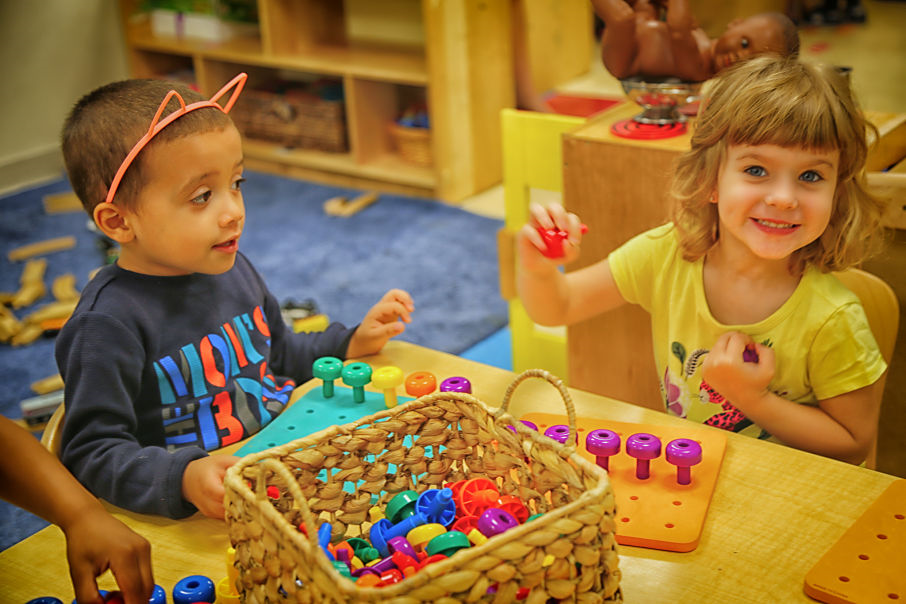
- Show curiosity, ask questions, and share creative ideas.
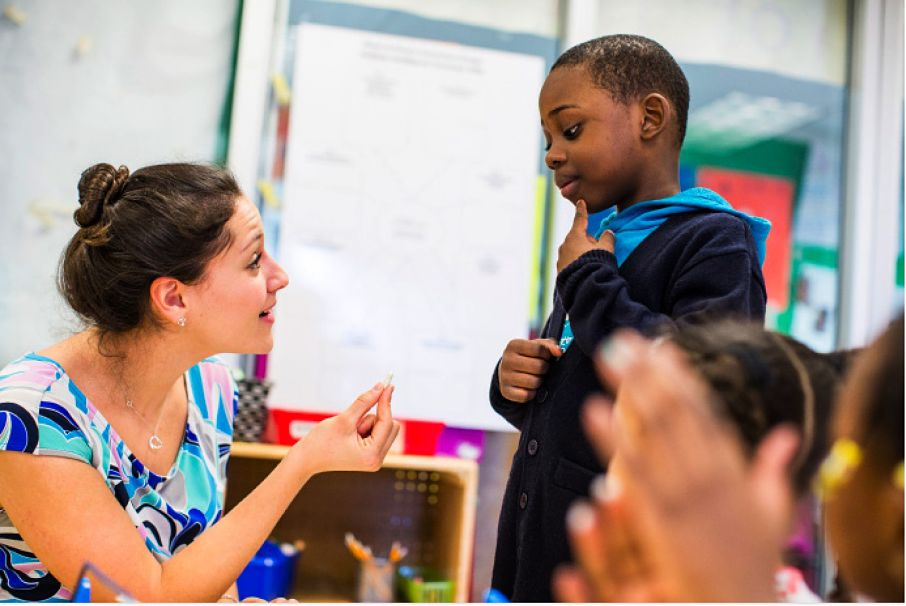
- Learn and practice new concepts.
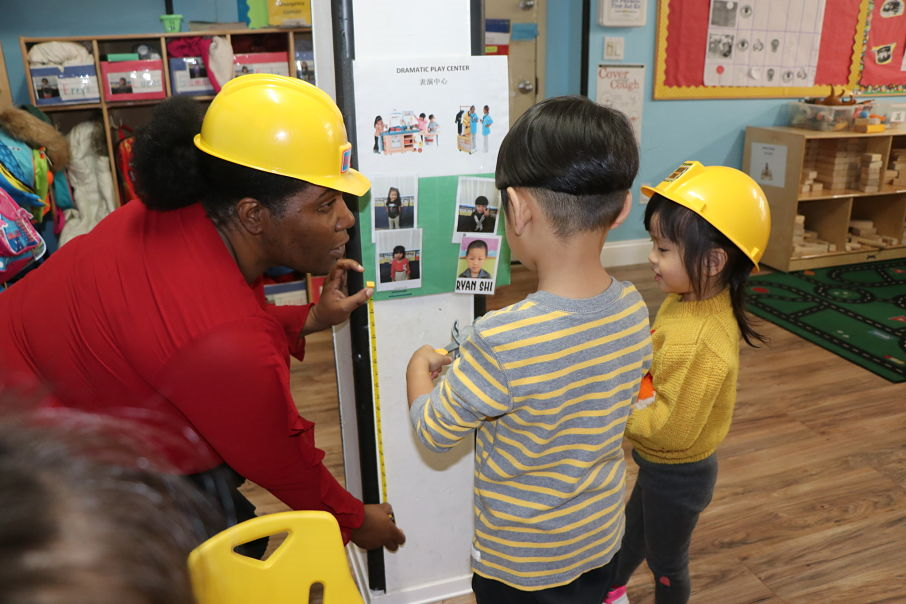
- Grow and become a member of the classroom community.
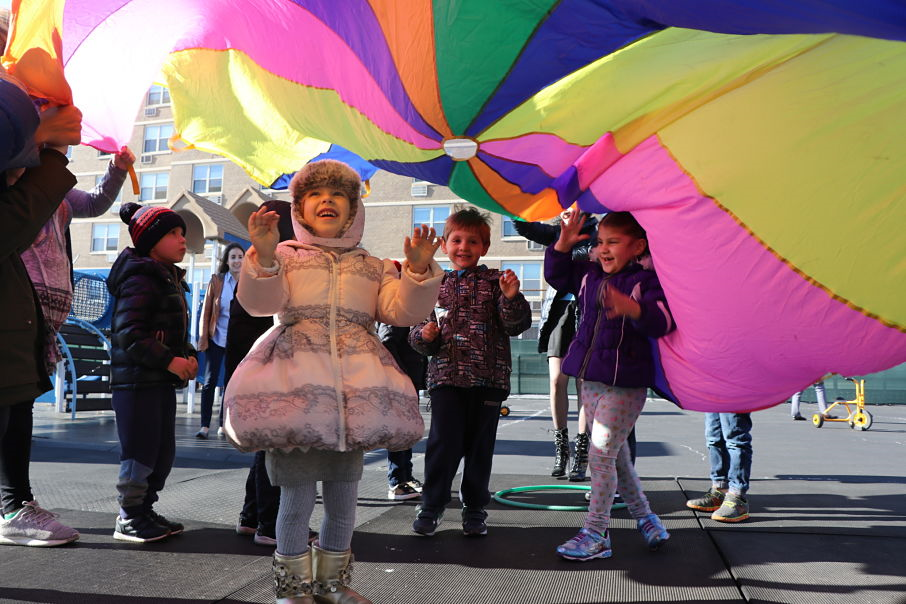
- Safely explore new ideas and materials, which will better prepare them for language, math, and scientific thinking.
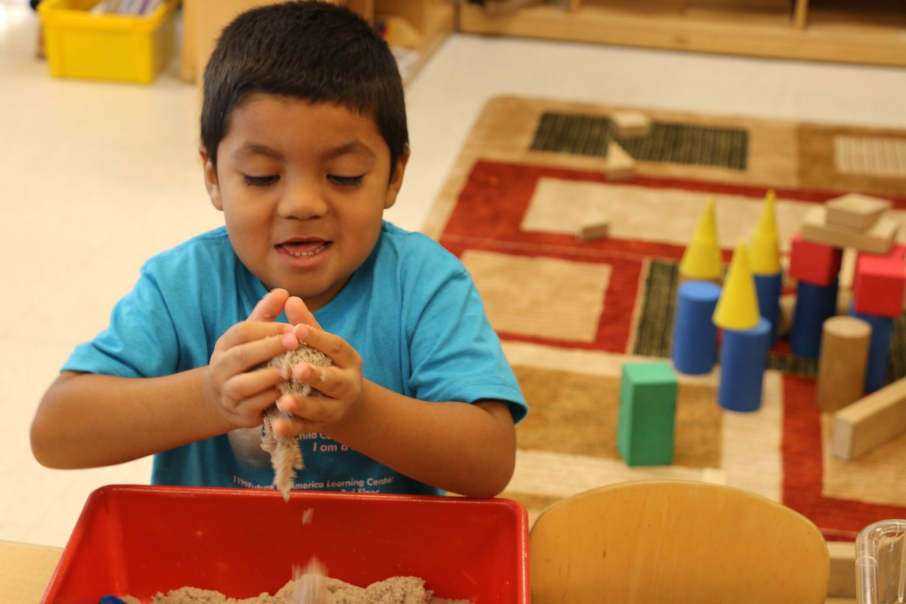
In a typical classroom day, your toddler or preschooler will learn in many different ways, including but not limited to:
- Short whole group and small group activities
- Choice time where they are able to work with a variety of materials
- Outdoor playtime
- Rest/naptime
- Meal and snack time
These experiences lay the foundation for your child's future successes in school and life by building on the five key parts of a child's development:
- Early social and emotional skills, such as sharing, solving social problems, and expressing and managing their feelings
- Learning skills such as problem solving, imaginative thinking, and persistence
- Pre-reading and writing skills, such as understanding that letters have meaning and can be combined to form words, and that reading and writing can be used to share information and ideas
- Early math skills, such as learning about numbers, shapes, sorting and patterns
- Physical strength and coordination skills, such as running and being able to use paint brushes and crayons
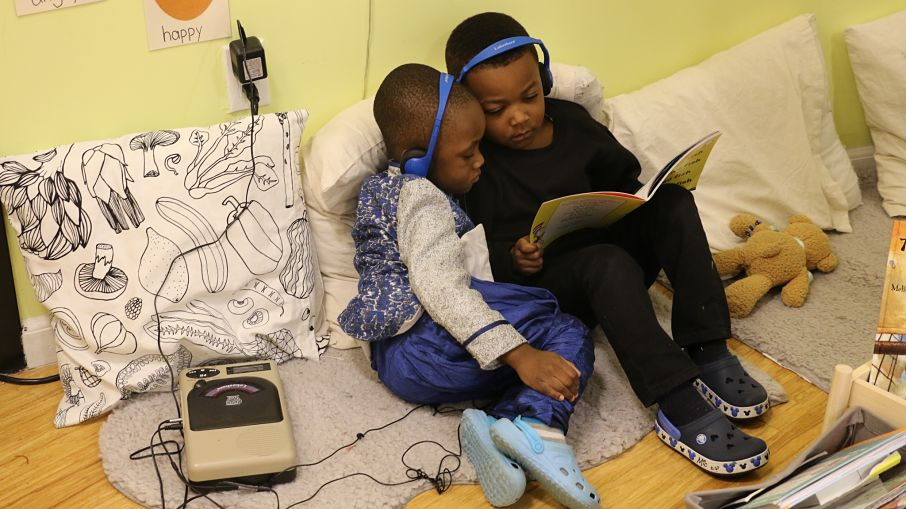
Find a Program
Our early childhood programs are held in many different settings:
- District Schools: programs located within public elementary schools and overseen by the school's principal.
- Pre-K Centers: run by DOE staff but unlike district schools, they only offer 3-K and pre-K. They are located either in existing district school buildings or standalone DOE sites.
- New York City Early Education Centers: NYCEECs are community-based organizations that contract with the DOE to provide EarlyLearn, 3-K and pre-K. These programs are selected through a rigorous evaluation process and are supported by the DOE Division of Early Childhood Education.
- Family Child Care: programs located in residences that are overseen by Family Child Care Networks who contract with and are supported by the DOE Division of Early Childhood Education. These programs offer EarlyLearn and/or 3-K.
Use these online tools to find a program that is right for your family:
- MySchools: information about early childhood programs citywide.
- Pre-K Quality Snapshot: information about program quality and parent satisfaction.
Need help? Visit a Family Welcome Center or call 311 and ask for information about early childhood education.
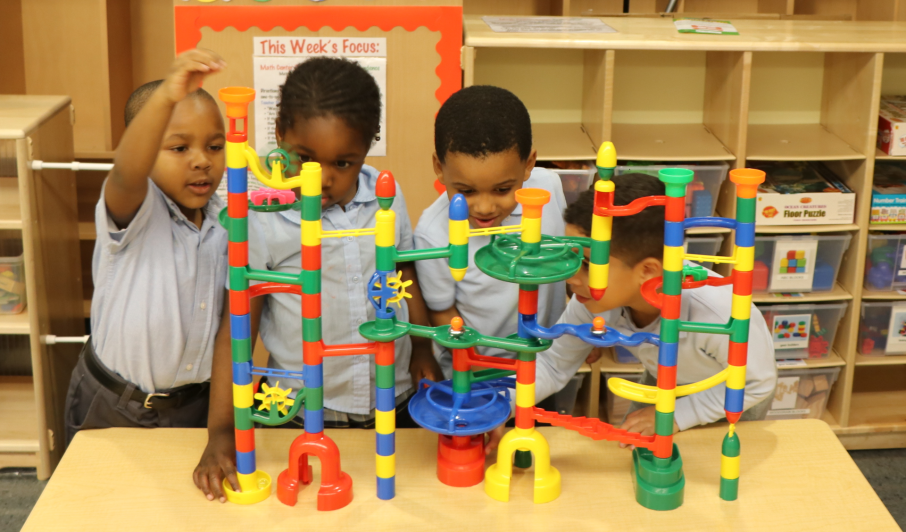
How to Enroll
To learn more about enrolling your child in Pre-K for All, 3-K for All, or EarlyLearn, visit our enrollment pages.
Special Education in Early Education
The DOE is committed to providing every child with the opportunity to learn and explore in a safe, nurturing, and engaging environment.
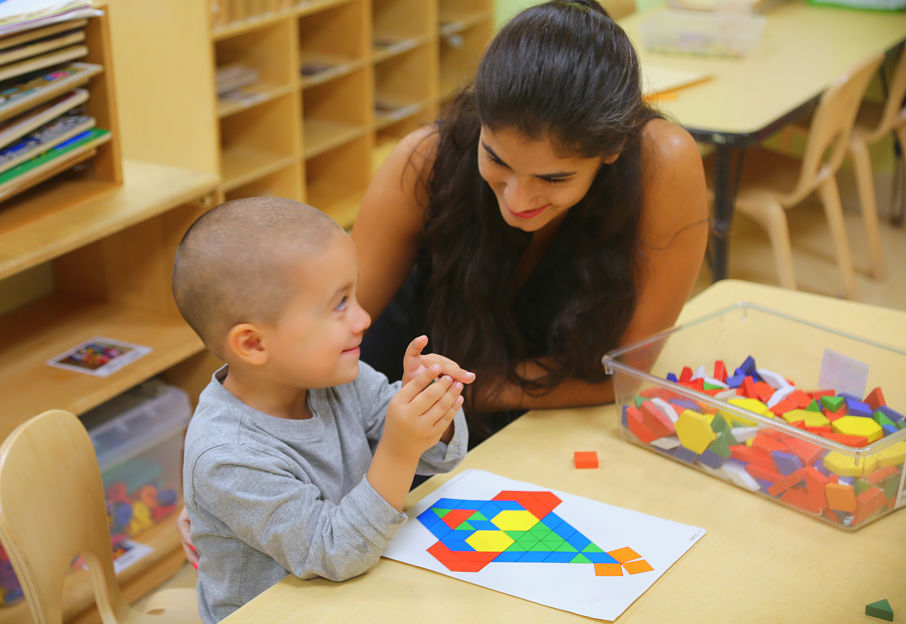
To learn more about Special Education services in our early childhood programs, visit the Special Education page about Moving to Preschool. If your child is in the Department of Health and Mental Hygiene Early Intervention program, go to the Transitioning from Early Intervention section to learn about how to prepare for the transition from Early Intervention to preschool, including what preschool options and special education services may be available to you.
Learning Together
So much of a child's brain growth occurs by age five. When you talk, read, and play with your child every day you are helping to build a solid foundation for success in school and life. Here are the things you can do at home to help your child learn and grow:
Talk with your child.
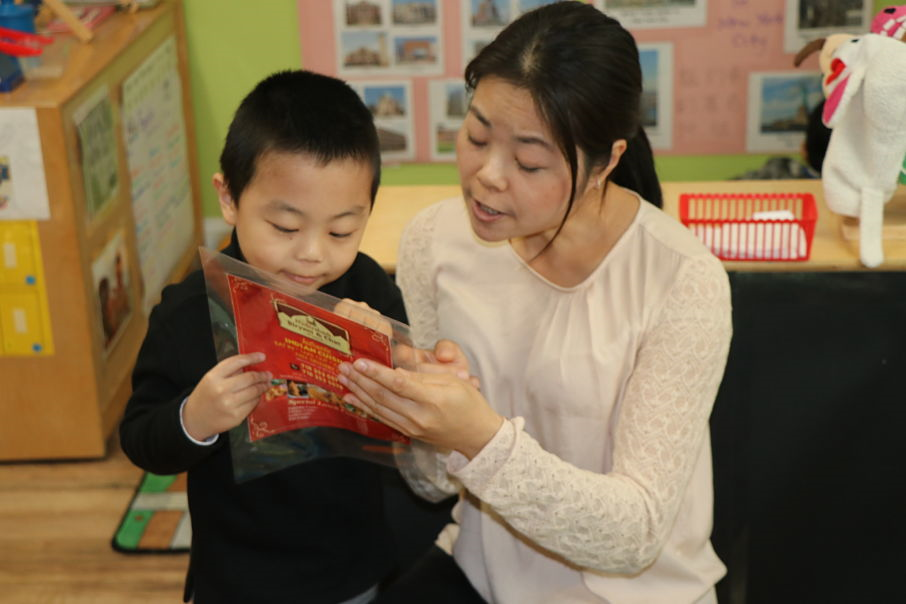
Every word your child hears builds their vocabulary and helps them to share their ideas through talking. This builds the foundation for later writing skills.
- Talk about the things you notice around you such as:
- Noises you hear while walking around the city together.
- Colors, shares, and textures of the things you see around you such as the details in buildings, objects, and nature.
- Symbols, letters, and words on signs or objects.
- Have back and forth conversations with your child. Try asking, "How..." or "Why..." questions to keep the conversation going. For example, you might say, "Why do you think that happened?" or "How do you know that blue and red make purple?"
- Help your child talk about feelings. For example, you might say, "You look frustrated, how do you feel?"
Read with your child.
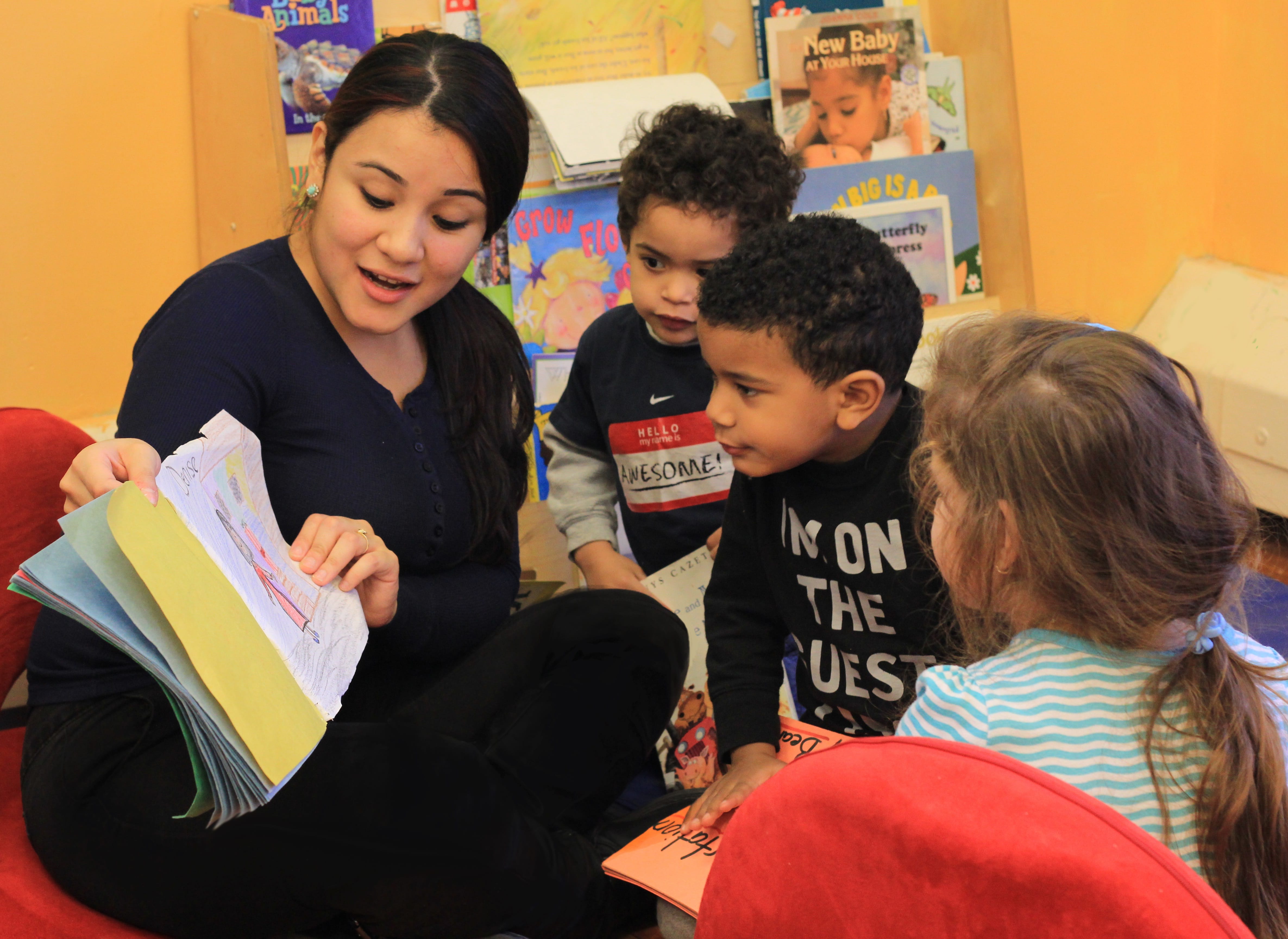
Reading together every day strengthens your relationship and helps prepare your child to read and write.
- Choose fun, engaging stories that are right for your family at your local library. Library staff can help you choose exciting books in a range of languages and topics. Many libraries have children's sections and special events for families. Click on your borough to find your local library:
- Bronx, Manhattan, and Staten Island
- Brooklyn
- Queens
- After selecting a book, invite your child to read with you:
- Before turning the page, ask your child to predict what will happen next.
- Make the story come alive by acting out movements or noises as they happen in the story.
- Make up stories with your child. Draw pictures of events in the story or act them out. Anytime your child makes a mark on a page---scribbles, pictures, letters---they are writing!
- Look at the faces of people and characters in books or magazines and ask your child, "How is _____ feeling?" Describing how others feel helps children express their own emotions and builds vocabulary skills.
Play with your child.
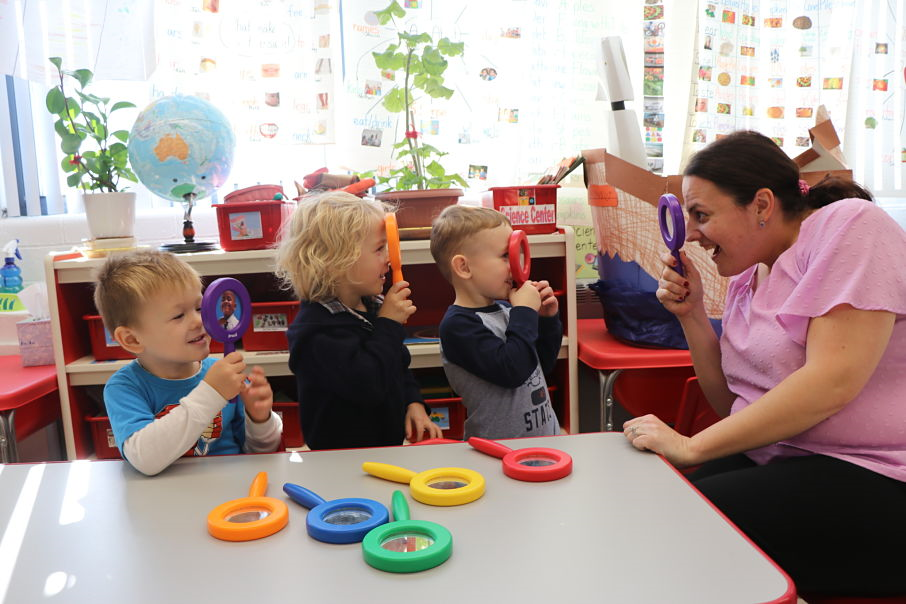
Play is the work of young children. When children play, they explore their ideas and interests, gain knowledge about the world and build self-esteem. Make time for play, and when possible, play together!
- Listen to your child play. Listening to your child play can tell you what your child finds important and what they are learning.
- Play pretend! Children play pretend to make sense of recent experiences. Your child may do this on their own, but you can also join in the fun. Research has shown that dramatic play helps children develop empathy, understand math and reading, and find creative solutions to problems. Your child may choose to act out anything from family dinner to a trip to the zoo to a made up fairytale.
- When you play together, follow your child's lead. Allow your child to explore various materials and use their imaginations to get the play started. Let your child be the star of the show and give yourself a supporting role. As you play together do what your child does and talk about what they are doing. For example, "All our cars were lined up racing, now they are stacked on top of each other in a tower."
- Go outside! In our busy city it can be a challenge to find the space or time to go outdoors and play. However, research shows that outdoor play is important to brain development. In addition to building muscle strength, coordination, and balance, playing outdoors encourages children to make predictions, take small risks, and cooperate with others. Not sure where to play? Visit NYC Parks or ask your child's teacher about outdoor spaces in the neighborhood.
Keep in touch with your child's school.
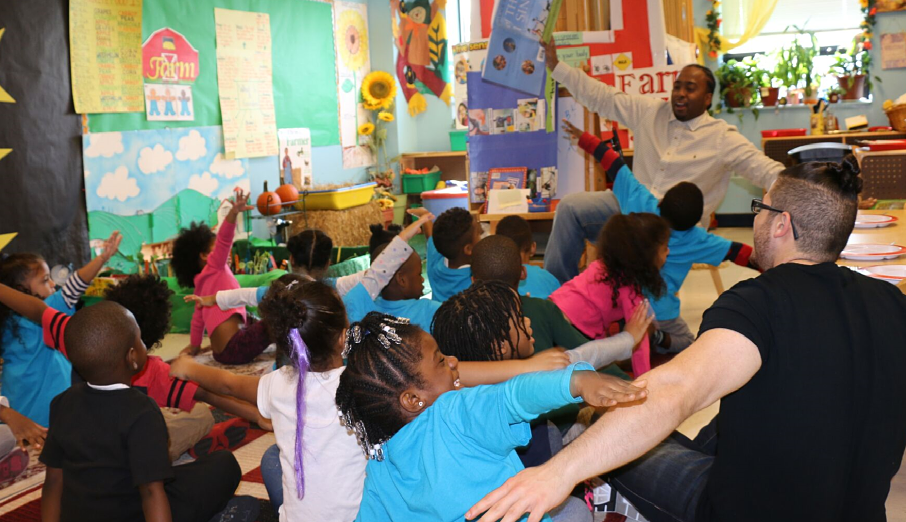
You are the expert on your child and their best supporter. You can help your child succeed in school by keeping in touch with your child's teacher.
- Introduce yourself to your child's teachers. Ask about what your child is doing in the classroom.
- Share information about your child and family with your child's teachers. This helps your child's teacher know how best to meet the needs of your child. General information as well as details about changes in your child's life are helpful.
- Have a conversation with your child's teacher about how you might support the school. There are many ways to offer support:
- Share some favorite songs you sing with your child, or other traditions that are important to your family.
- Donate recycled (clean) containers or natural materials (twigs, pinecones, leaves, etc) for children to use in the classroom.
- If you have time in your schedule, ask about volunteering in the classroom or at special events.
Resources
- Early Literacy Resources is a DOE webpage that provides fun and easy ways to help your child build a lifelong love of learning.
- Vroom is a website and app that helps turn everyday moments into fun brain-building experiences. Vroom can help turn mealtime, bath time, and commuting into learning opportunities.
- Family Resources and Tools from the Center on the Social and Emotional Foundations for Early Learning has information on why it is important for young children to learn about social and emotional skills. This site provides many ideas and strategies for you to use as you support young children through managing emotions, creating caring relationships, and addressing challenging behavior.
- Choose My Plate provides clear guidance on health eating at any age! With a page just for preschoolers, you can learn more about how what your child eats supports their body and mind. This site has articles and easy to use tools to help your child eat well, be active, and grow up healthy.
- PBS Parents gives you tips and resources for bringing learning to life at home. With ideas for crafts, science experiments, recipes, and more, your family will love the adventures inspired by this site!
- Dolly Parton's Imagination Library provides a free book each month to children 0-5 (may not be available in all areas).
Infant Care
We offer programs for infants based on income eligibility. In a typical infant classroom, your child will be cared for by responsive caregivers who will partner with you and offer support as your child learns and grows. Infant classrooms are safe, nurturing, and predictable spaces where caregivers focus on the individual needs of each infant, as well as on ways to support the whole family's experience.
The experiences your infant has in care can help build key skills for development:
- Social and emotional skills such as engaging with familiar adults, beginning to interact with other infants, and expressing emotions such smiling or laughing when pleased and crying to show displeasure.
- Physical skills such as developing strength to move their bodies and explore how their bodies work.
- Language and communication skills such as babbling, responding to their name, laughing, and smiling.
- Cognitive (thinking) skills such as expressing curiosity, focusing on objects and faces, enjoying peekaboo, and recognizing familiar faces.
Source: https://www.schools.nyc.gov/learning/student-journey/grade-by-grade/early-childhood-learning
0 Response to "Short Circuit Coordination Continuing Education Class Nyc"
Post a Comment